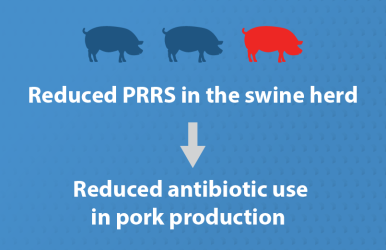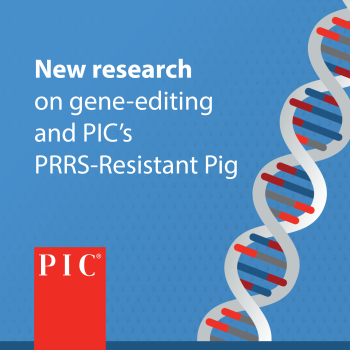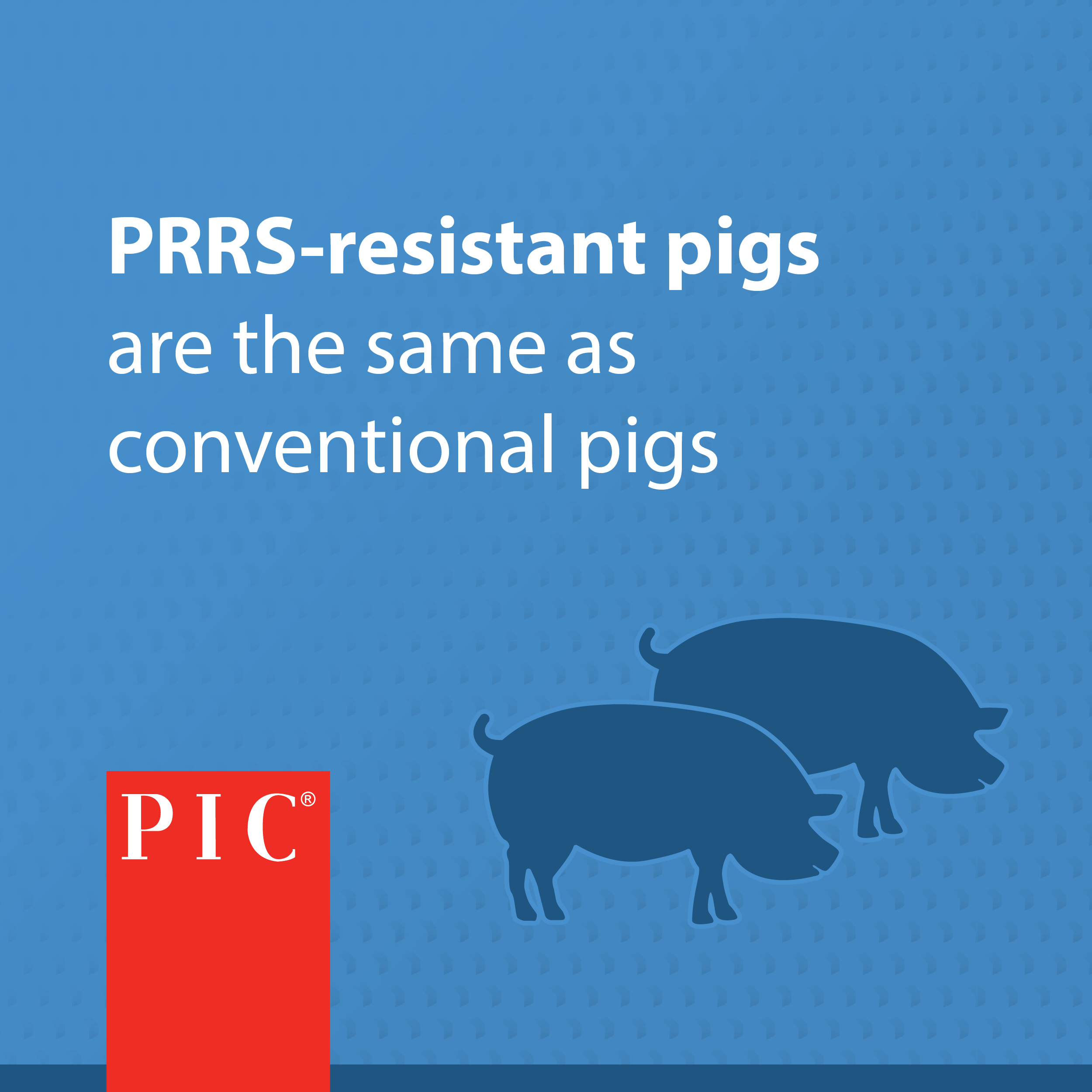Pathway to Carbon Assets through Pork Genetics
The National Pork Board (NPB) and Pig Improvement Company (PIC) partnered and co-funded the development of an ecosystem service framework to enable genetic innovations to create value through greenhouse gas emission reductions. When the framework is complete it will be demonstrated through a value chain test-pilot. This will be the first-time genetics are utilized as a greenhouse gas intervention and will demonstrate the role genetic improvements, including those that can be achieved through gene editing, contribute to a sustainable food system.

Study Shows Preventing PRRS Could Dramatically Reduce Demand for Antibiotic Use in Pork Production
Iowa State University’s recent study reveals a groundbreaking connection between preventing a common swine disease and significantly reducing the demand for antibiotics in pork production. The study, led by Isadora Machado, a graduate research assistant at Iowa State University College of Veterinary Medicine, focuses on the impact of the Porcine Respiratory and Reproductive Syndrome (PRRS) virus on antibiotic use in pig farms. PRRS, a viral disease with immunosuppressive characteristics, increases the need for antibiotics. PIC employs gene editing technology to create PRRS-resistant pigs, thereby improving overall herd health and diminishing the reliance on antibiotics. This groundbreaking solution aligns with PIC’s commitment to antimicrobial stewardship in animal protein production, contributing to animal welfare and antibiotic reduction goals.

Study Demonstrates PRRS Resistance on a Commercial Scale
PIC has established a large population of PRRS-resistant pigs. The result is traditionally-bred pigs that are the offspring of — and several generations removed from — the original gene-edited pigs. The study published in CRISPR has shown that this gene edit can be used responsibly to protect pigs from the PRRS virus and has no negative impact on production performance or the resulting pork products.

Research Shows PRRS-resistant Pigs are the Same as Conventional Pigs
PRRS-resistant pigs and the resulting pork products are the same as conventional pigs and the pork products consumers are accustomed to seeing in restaurants/grocery stores. This research, conducted by PIC over several years, was peer-reviewed and published in the scientific journal Frontiers in Genome Editing.

